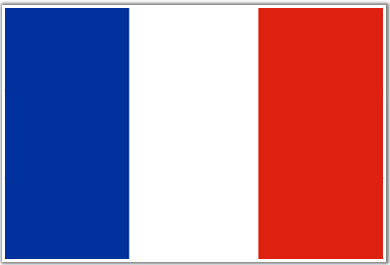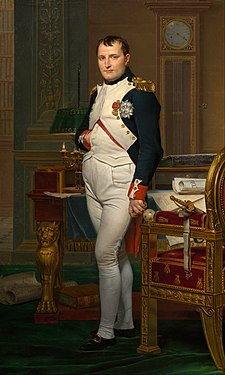
 The French Revolution (1789-1799)
The French Revolution (1789-1799)
Revolutions come about for many reasons; people want independence, injustices need to be redressed, loss of confidence in the ruling government or monarch, and in a way one of the most famous has most if not all of these traits. At the tail end of the eighteenth century the people of France were fiercely and savagely divided. The poor were unremittingly poor, destitute and without a voice, while the nobles and gentry lived it up and cared nothing for the ordinary folk. Their king, Louis XVI, continued to levy crippling taxes upon the people to finance his ongoing wars with the British and Germans in the American Revolutionary War and to maintain his increasingly hedonistic lifestyle and that of his court, completely oblivious to the want and destitution stalking the streets of his country. Isolated in the Palace of Versailles, where the walls did nothing but reflect images of his own glory, and keep out the desperate cries of the poor and the hungry, King Louis, by all accounts a weak ruler, refused to deal with the rising crisis, refused to even see it as such until the Bastille was stormed and then Versailles itself, which forced the king to pull his court back to the capital.

Rising food prices, a spiralling cost of living and bad harvests, together with growing resentment of the clergy and the nobility would lead to a popular uprising the likes of which the world had never seen, with the king being arrested and then executed along with his queen, Marie Antoinette. However, as is so often the case with new power bases, the Committee of Public Safety, headed by Maximellen Robespierre, drunk on power instigated what became known as the Reign of Terror, in which first only nobles and their supporters were executed by the dread guillotine, but soon anyone who got in Robespierre’s way or threatened his grip on power would find their head rolling into a basket. As in all such “purges”, many of those who lost thier lives under the blade did so for no other crime than thinking differently to what was offically espoused by the Committee, or as a result of scores to be settled. A hundred and fifty-odd years later the same thing would happen to the Jews in Hitler’s Germany.
But as always happens, Robespierre overreached himself and went too far. Gaining too much power in the Committee he became less a leader and more a liability, and his fanatical devotion to his ideals --- which had earned him the epiteth “The Incorruptible” --- was another factor which led to his eventual and inevitable downfall. With the rise of Napoleon Bonaparte in 1804 the Committee of Public Safety was disbanded and the Consulate established, paving the way for Napoleon to be named the first French Emperor. On his defeat in 1815 the monarchy was restored, though as a constitutional, rather than absolute power.

Between then and near to the end of the nineteenth century France wavered between monarchy and republic, finally emerging as the latter in 1870, and today it is still the Republic of France. So in some ways the French Revolution succeeded spectacularly, but in other, perhaps more important ways, it failed miserably. Hundreds of thousands of French citizens, many of them guilty of no crime, died under the hard, unyielding steel gaze of Madame La Guillotine, and in the end even those who had masterminded and driven the Revolution died, as they had condemned so many others, beneath the pitiless descent of the blade.